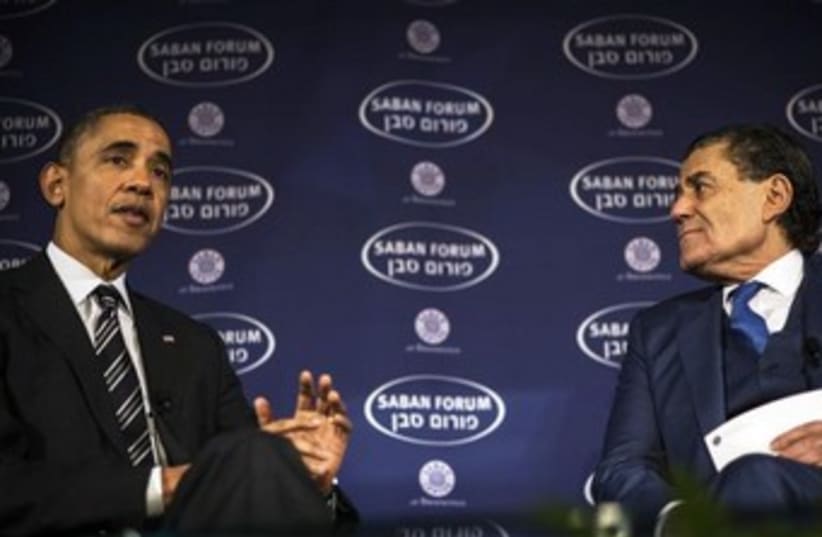Analysis: Obama succeeded in talking to Israelis, over the head of Netanyahu
The US president delivered the goods at the Saban Forum with interesting insights on the subject of Iran and the Palestinians; The question is, were they satisfied by his comments at a certain house in Jerusalem, or Caesarea.
